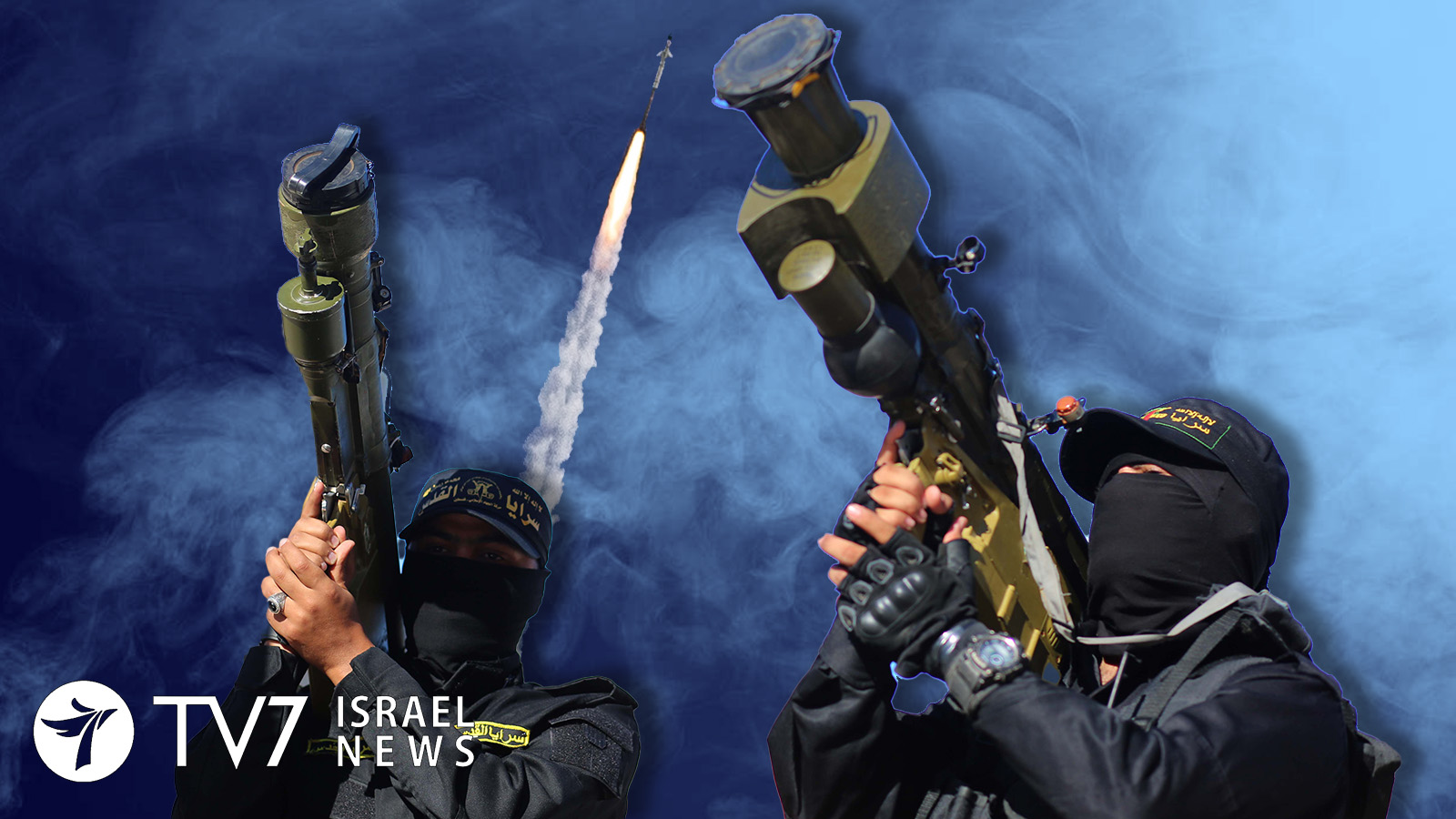The IDF has officially declared that a ceasefire with the Islamist organizations in the Gaza Strip has taken effect. Israeli and Palestinian sources confirmed to TV7 that as of 5:30 this morning, a cessation of hostilities arrangement is in place. The military’s Home Front Command has given instructions to resume normal routine everywhere in Israel, except for the Gaza periphery communities and the southern city of Ashkelon. The IDF indicated, however, that the current ceasefire is tenuous and as such it maintains a high state of alert for the possibility that the rocket fire will resume. In tandem, the Iranian-backed Palestinian Islamic Jihad also announced that it will abide by the Egyptian brokered ceasefire. This morning Islamic Jihad Spokesperson Musab Al-Braim said “We confirm that we have reached a ceasefire, under Egyptian sponsorship. It started at 0530 (0330GMT) as the occupation (Israel) was forced to agree to the conditions set by the Palestinian resistance. The deal was made by Islamic Jihad on behalf of all the Palestinians. The conditions are to stop assassination operations, protect protesters during border protests for the right of return and to start implementing steps to break the siege.”
Nevertheless, tensions persist. An Egyptian intelligence official revealed to TV7, on condition of anonymity, that the situation remains fragile due to remaining gaps regarding the terms of the understandings between Israel and the Palestinian factions in Gaza. The main gap stems from Israel’s reluctance to provide assurances that it will refrain from employing the tactic of targeted assassinations against what international law defines as ‘terror operatives’. On the one hand, Jerusalem’s refusal to do so significantly increases the country’s level of deterrence, while on the other hand, it contravenes with the public pledge that was made by the leader of the Palestinian Islamic Jihad, Zeyad al-Nakhala, to continue the fight against Israel unless all of their demands are met. Al-Nakhala listed his organization’s demands during an interview with the Hezbollah-affiliate Al-Mayadeen Network in the Lebanese capital, Beirut. He said, “The terms are first of all, end assassinations in Gaza strip and West Bank, end assassinations. Secondly, stop shooting toward (Gaza) border civilian protesters. Third, Israel adhere the agreements that we had in Cairo which are related to ease Gaza blockade. These are our three conditions.”
This morning Israeli Public Security Minister Gilad Erdan who serves as a member of Jerusalem’s security cabinet insisted that no agreement was made vis-à-vis Israel’s policy of assassinations. In an interview with the domestic Kan State radio, Minister Erdan underscored that “there has been no change in Israel’s policy towards Gaza.” His statement echoed the presiding sentiments within Israel’s defense establishment, which was voiced by Prime Minister Benjamin Netanyahu during a top brass security assessment. According to the Israeli PM “There is a real change in the equation here because now the terrorist leaders and every single one of their activists know that we can reach them in their hiding places, reach them with surgical precision, and act against them. And that deprives them of that feeling that they can act against us, against our civilians, while hiding behind their civilians. It’s a change of equation because [now] everyone can be targeted, everyone is targeted. This is a very big change. It greatly strengthens Israel’s deterrence and capabilities against terrorists.”
It is important to mention that despite the declaration of a ceasefire early this morning rockets continued to pour over Israel’s civilian communities until 11 Am.
Meanwhile in the southern Israeli city of Sderot, residents voiced discontent with the outcome of the latest round of hostilities. Meir Ben Zikri warned that “In a week from now, in two weeks, in maximum a month, we will get back to the routine of Qassam rockets, running to shelters, children in fear. And? With all the desire for a ceasefire, I’m not so happy.” Another unreleased resident of the southern city, Alon Davidi, voiced the opinion that “The state of Israel can target terrorists. It is not a question of ability; it is a question of will. For two years we have been talking about the need to target these terrorists who are roaming free and firing at us and I’m glad the state of Israel did it. The second thing is that this will not bring calm to the area. Calm in the region will be achieved only after the state of Israel will embark on a wide-scale campaign, as it did during (operation) ‘Protective Edge’, after which this calm was maintained for over three and a half years.”
Residents of the Hamas-controlled Gaza Strip also voiced their frustration with this latest round of violence – indicating hope that the Islamist organization attain more qualitative means to even the battle-ground with the Jewish State. According to Mohammed al-Simiri “The retaliation was good, our blood was not spilled in vain. About the truce, we don’t want our people to suffer more, because we are already under a tough siege.” Additional Gaza resident Adel Rajab said “It is an unbalanced fight, we didn’t achieve much. When they kill 50 martyrs and cause a lot of destruction, what did we achieve? But what I can tell you is that we retaliated as much as we can, our reaction is that we are a people who will never be silent about its rights and will never be silent when it’s being struck. We hope that we will have more (abilities) to retaliate in a shocking way and then a truce will not be reached until we will achieve victory and freedom.”
